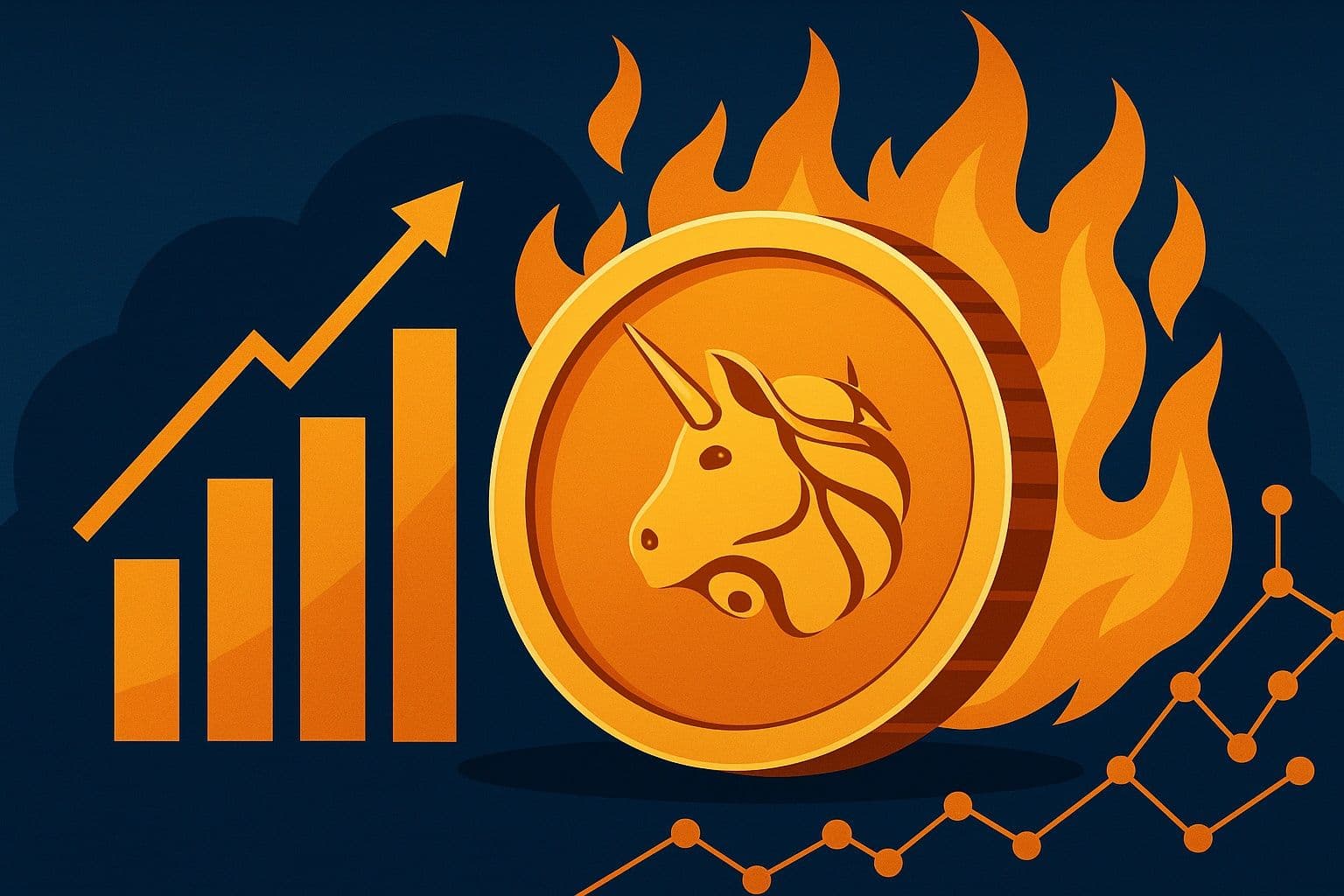A new leadership-backed proposal is set to reshape Uniswap, one of decentralised finance's largest exchanges. The plan would activate its long-debated fee switch, redirect a portion of protocol revenue toward burning UNI tokens, and dissolve the Uniswap Foundation. This multi-faceted initiative, representing a significant strategic shift, has ignited a strong market response and revived intense community discussion about the token's fundamental value and the protocol's governance future.
The proposal aims to directly reward UNI holders by introducing deflationary mechanics, a move supporters have long advocated for. However, it also raises complex questions about governance centralization and regulatory implications. Unlike previous discussions, this comprehensive package links the fee switch directly to a large-scale token burn and a major restructuring of the ecosystem's governing bodies. This has created a sense of finality and consequence, prompting the market to re-evaluate UNI's long-term tokenomics. The price of UNI saw a significant surge following the announcement as traders priced in the potential for reduced token supply and direct value accrual.
Background: Why the Fee Switch Matters
The "fee switch" has been a central and contentious topic within the Uniswap community for years. If activated, it would allow UNI token holders to vote to redirect a fraction of the trading fees generated by the protocol. Currently, these fees are distributed entirely to liquidity providers (LPs), who supply the token pairs for trading.
Proponents, primarily token holders, argue that activating the switch is essential for making UNI a productive asset, giving it intrinsic value tied to the protocol's success. Opponents, including some LPs and developers, have raised concerns that it could reduce incentives for providing liquidity and potentially attract unwanted regulatory scrutiny. Previous attempts to address the fee switch have stalled due to these conflicting interests and a lack of consensus on how to implement it without harming the ecosystem.
The New Proposal: Token Burns, Revenue Redirection, and Foundation Shutdown
The current proposal is far more ambitious than prior efforts. It details a clear mechanism for value capture:
- Fee Switch Activation: A portion of protocol fees would be collected by the protocol.
- Revenue Redirection for Burns: Instead of being paid out as a dividend, the collected revenue would be used to buy UNI tokens on the open market and permanently remove them from circulationa process known as a "token burn."
- Foundation Dissolution and Burn: The plan includes winding down the Uniswap Foundation, a key organizational body, and burning the hundreds of millions of dollars' worth of UNI currently held in its treasury over time.
Combined, the redirected revenue and the Foundation's treasury are estimated to contribute to a burn of approximately $800 million worth of UNI tokens, based on prices at the time of the proposal. The final amounts are subject to governance approval and market conditions.
Why This Is Being Framed as a Deflationary Pivot
By systematically removing tokens from the circulating supply, the proposal aims to introduce deflationary pressure on UNI. In economic terms, reducing the supply of an asset while demand remains constant or increases can lead to an increase in its price. This strategy aligns Uniswap with other major crypto projects that have successfully implemented similar mechanics.
For example, Binance periodically burns its BNB token, tying the burn amount to its quarterly profits. Similarly, Ethereum's EIP-1559 update introduced a mechanism that burns a portion of transaction fees, making ETH a potentially deflationary asset. While only an analogy, these models illustrate how token burns can be used to create a direct link between network activity and token value. Supporters believe this pivot is critical for UNI's long-term competitiveness.
Market Impact and Community Response
The market reacted swiftly and positively to the news. The price of UNI experienced a sharp increase as the proposal's details were released, with trading volumes spiking. The move was widely interpreted as a decisive step toward enhancing token holder value.
Community sentiment, however, is more divided. On social media and governance forums, many users celebrated the proposal as the "unlock" they had been waiting for, finally giving a clear reason to hold the UNI token. Others have expressed significant concern. Critics worry that dissolving the Uniswap Foundation, which funds grants and coordinates development, could create a leadership vacuum and centralize decision-making power among a smaller group of large token holders.
Governance Ramifications: A Power Shift in the Making
Shutting down the Uniswap Foundation represents a fundamental change in the protocol's governance structure. The Foundation was established to act as a neutral steward, fostering ecosystem growth and supporting development initiatives. Its removal raises critical questions about who will assume these responsibilities.
Analysts point out that this could concentrate power in the hands of large "delegate" token holders who control significant voting power. While some see this as a move toward a more streamlined and token-holder-centric model, others warn it could decrease decentralization. Concerns have been raised that without a dedicated entity to coordinate public goods and long-term research, the protocol’s future innovation could become dependent on the whims of its largest investors.
What Comes Next
The proposal will now proceed through Uniswap's formal governance process, which includes community discussion and a binding on-chain vote. The outcome will likely depend on the voting decisions of સેવાll-known delegates and large UNI holders. Observers will be closely monitoring the debate for signs of consensus or organized resistance.
If the proposal passes, it would be one of the most significant governance and tokenomic shifts ever executed by a major DeFi protocol. It would set a new precedent for how established projects can evolve to create direct value for their token holders. For now, the entire DeFi space is watching to see if Uniswap's community will vote to burn its way to a new, deflationary future.

